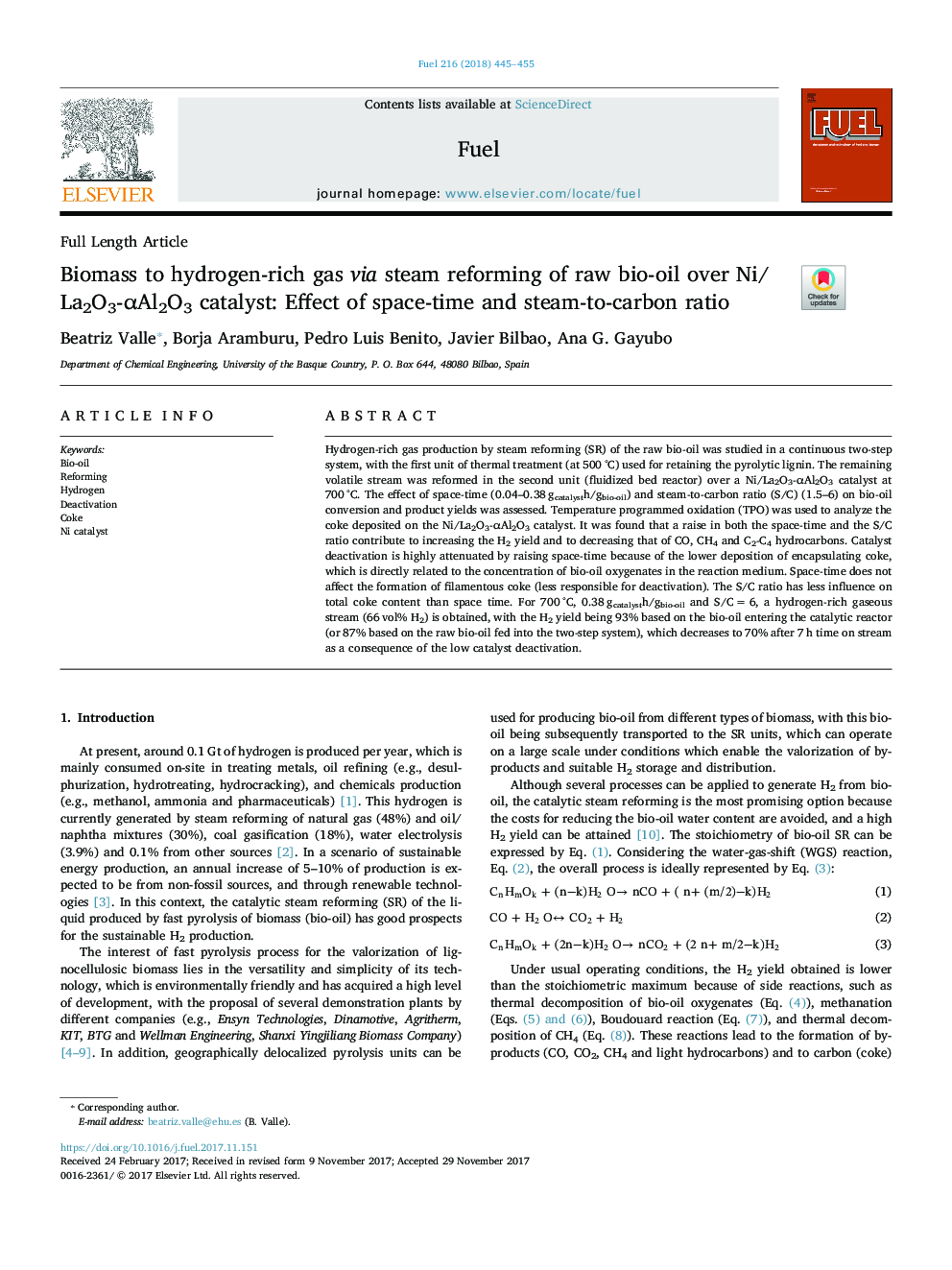| Article ID | Journal | Published Year | Pages | File Type |
|---|---|---|---|---|
| 6632179 | Fuel | 2018 | 11 Pages |
Abstract
Hydrogen-rich gas production by steam reforming (SR) of the raw bio-oil was studied in a continuous two-step system, with the first unit of thermal treatment (at 500â¯Â°C) used for retaining the pyrolytic lignin. The remaining volatile stream was reformed in the second unit (fluidized bed reactor) over a Ni/La2O3-αAl2O3 catalyst at 700â¯Â°C. The effect of space-time (0.04-0.38â¯gcatalysth/gbio-oil) and steam-to-carbon ratio (S/C) (1.5-6) on bio-oil conversion and product yields was assessed. Temperature programmed oxidation (TPO) was used to analyze the coke deposited on the Ni/La2O3-αAl2O3 catalyst. It was found that a raise in both the space-time and the S/C ratio contribute to increasing the H2 yield and to decreasing that of CO, CH4 and C2-C4 hydrocarbons. Catalyst deactivation is highly attenuated by raising space-time because of the lower deposition of encapsulating coke, which is directly related to the concentration of bio-oil oxygenates in the reaction medium. Space-time does not affect the formation of filamentous coke (less responsible for deactivation). The S/C ratio has less influence on total coke content than space time. For 700â¯Â°C, 0.38â¯gcatalysth/gbio-oil and S/Câ¯=â¯6, a hydrogen-rich gaseous stream (66â¯vol% H2) is obtained, with the H2 yield being 93% based on the bio-oil entering the catalytic reactor (or 87% based on the raw bio-oil fed into the two-step system), which decreases to 70% after 7â¯h time on stream as a consequence of the low catalyst deactivation.
Related Topics
Physical Sciences and Engineering
Chemical Engineering
Chemical Engineering (General)
Authors
Beatriz Valle, Borja Aramburu, Pedro Luis Benito, Javier Bilbao, Ana G. Gayubo,
